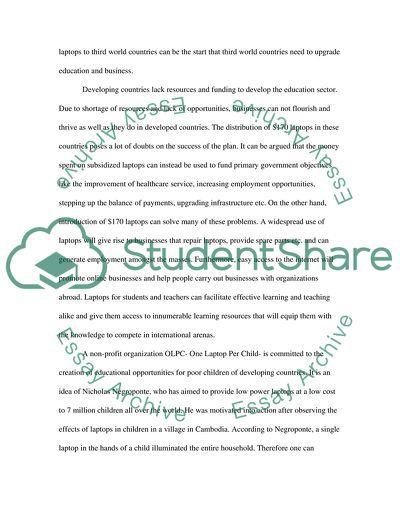Cite this document
(Can Laptop Revolutionize Education and Business in the Third World Research Paper, n.d.)
Can Laptop Revolutionize Education and Business in the Third World Research Paper. Retrieved from https://studentshare.org/social-science/1737343-can-a-170-laptop-revolutionize-education-and-business-in-the-third-world
Can Laptop Revolutionize Education and Business in the Third World Research Paper. Retrieved from https://studentshare.org/social-science/1737343-can-a-170-laptop-revolutionize-education-and-business-in-the-third-world
(Can Laptop Revolutionize Education and Business in the Third World Research Paper)
Can Laptop Revolutionize Education and Business in the Third World Research Paper. https://studentshare.org/social-science/1737343-can-a-170-laptop-revolutionize-education-and-business-in-the-third-world.
Can Laptop Revolutionize Education and Business in the Third World Research Paper. https://studentshare.org/social-science/1737343-can-a-170-laptop-revolutionize-education-and-business-in-the-third-world.
“Can Laptop Revolutionize Education and Business in the Third World Research Paper”, n.d. https://studentshare.org/social-science/1737343-can-a-170-laptop-revolutionize-education-and-business-in-the-third-world.


